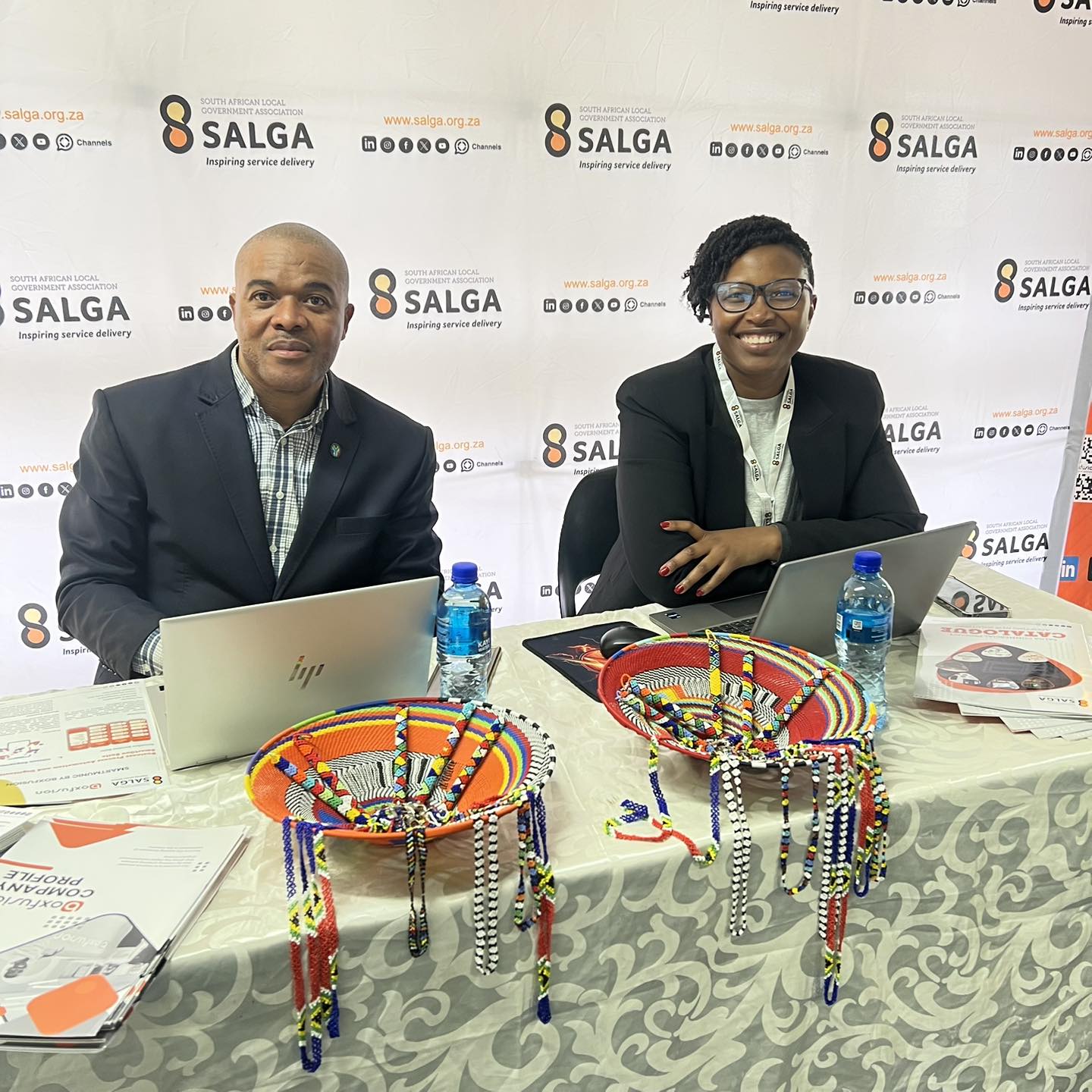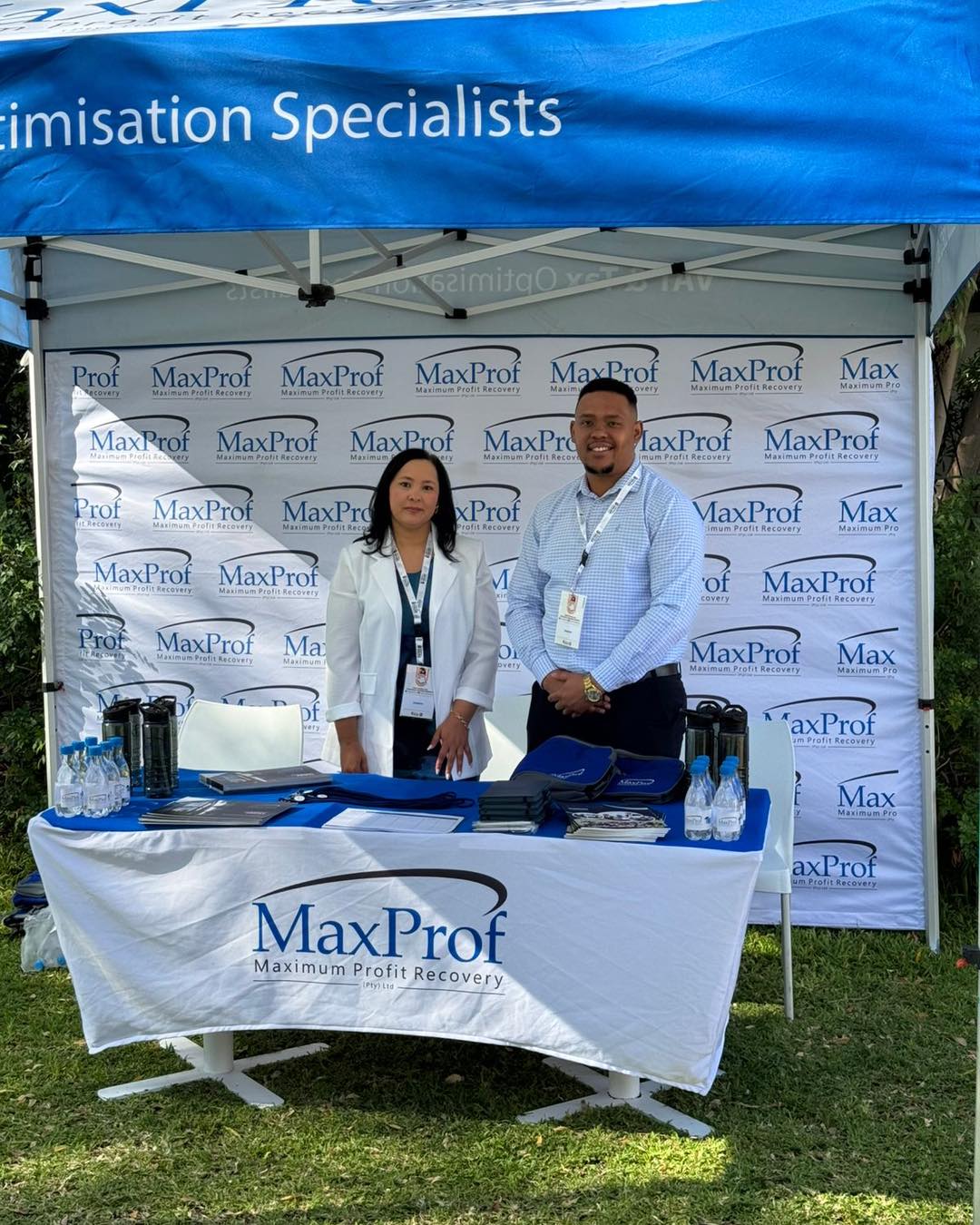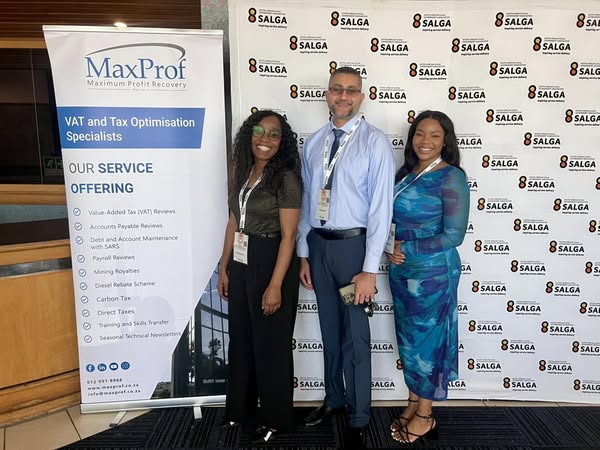Written by Sanjeevan Bisnath, MaxProf Head of Department
Introduction to VAT Domestic Reverse Charge (DRC)
A VAT Domestic Reverse Charge (DRC) on valuable metal was introduced on 8 June 2022 under Section 74(2) of the Value-Added Tax Act 1991 (Act 89 of 1991), as per Notice 2140 (DRC Regulations).
The DRC mechanism ensures that the recipient accounts for VAT instead of the supplier. This system was implemented to curb VAT fraud, particularly in cases where gold was obtained illegally and used to claim fraudulent VAT refunds.
Why Was the DRC Introduced?
Combating VAT Fraud in the Gold Industry
- The South African Revenue Service (SARS) identified fraudulent schemes exploiting VAT refunds through illegal gold trading.
- Historically, notional input tax deductions were permitted on gold purchases from non-VAT vendors. This unintentionally facilitated fraudulent VAT claims.
- Amendments to the VAT Act later prohibited notional input tax deductions for second-hand gold unless resold in its original form.
- Despite these amendments, fraudsters continued exploiting VAT loopholes by falsifying documents and setting up fake VAT-registered businesses.
How Fraud Was Committed
Fraudulent vendors:
- Used “invoice farms” to create fake paper trails.
- Registered fictitious businesses to buy and export gold at a zero rate, them claimed massive VAT refunds.
- Created multiple layers of transactions, making it difficult for SARS to track when illegal gold entered the supply chain.
- This led to billions of Rands in revenue loss.
Implementation of the DRC
Global Benchmarking & Effective Date
- SARS studied international best practices, particularly from Australia and the UK.
- The DRC Regulations took effect on 1 July 2022.
- It applies to all vendors dealing with valuable metal as defined in Regulation 1.
Key Requirements for DRC Applicability
For a transaction to qualify under the Domestic Reverse Charge, the following four conditions must be met:
- The supplier must be a registered VAT vendor.
- The recipient must be a registered VAT vendor.
- The goods must qualify as “valuable metal” under the DRC definition.
- The supply must be subject to VAT at the standard rate of 15%. (Exports and zero-rated supplies do not qualify.)
If any of these conditions are not met, the standard VAT rules apply.
What Qualifies as "Valuable Metal"?
The DRC applies to goods containing gold in forms such as:
- Jewellery, bars, blank coins, ingots, buttons, wires, plates, granules, or solutions.
- Residues or other similar forms.
- Ancillary goods and services (e.g., packaging related to gold products).
- Raw gold mined by registered mineral rights holders under the Mineral and Petroleum Resources Development Act (MPRDA).
- Gold transactions involving the South African Reserve Bank (SARB) or banks.
- Gold coins issued by SARB.
- Movable goods supplied to customs-controlled areas or Special Economic Zones (SEZs).
The broad definition of “valuable metal” allows SARS to prevent fraud while ensuring legitimate businesses can operate without excessive regulatory burdens.
How the DRC Works in Practice
- Under the DRC mechanism, the recipient (buyer) is responsible for VAT compliance.
- The recipient pays the supplier only the exclusive amount (excluding VAT).
- The recipient must declare VAT on behalf of the supplier in Field 12 of the VAT201 return.
- The recipient can claim input tax in Field 18, but only after ensuring that output tax has been declared and paid to SARS.
- The supplier still reports the transaction value in Field 3, although this does not create a VAT liability.
Taxpayer Responsibilities Under the DRC
- Vendors trading in valuable metals must update their VAT registration status with SARS.
- SARS will assign a DRC code to these taxpayers for tracking and compliance purposes.
- Proper documentation is mandatory to create a clear audit trail and prevent fraud.
Conclusion
The Domestic Reverse Charge (DRC) Regulations serve as a critical tool in preventing VAT fraud in the gold industry. By shifting VAT liability to the recipient, SARS can better track transactions and reduce tax evasion. Businesses dealing in valuable metal must ensure full compliance with DRC regulations to avoid penalties and audits.













